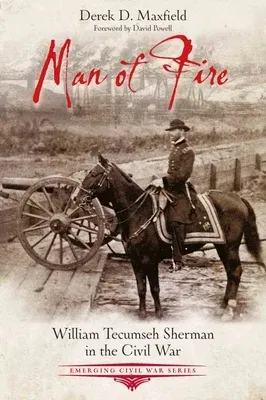He has been accused of "studied and ingenious cruelty." By turns, he has
been called a savior and a barbarian, a hero and a villain, a genius and
a madman. But whatever you call William Tecumseh Sherman, you must admit
he is utterly fascinating.
Sherman spent a lifetime in search of who he was, striving to find a
place and a calling. Informally adopted by the Ewing family of
Lancaster, Ohio, when his own father died when he was just nine, the
young redhead lived in a spacious mansion just up the hill from his
mother. Later, as a young man, he would marry his adopted sister,
Ellen.
After attending West Point, the intrepid Ohioan found that being a
soldier suited him. Yet he always seemed to miss his opportunity. The
second Seminole War was in its closing days before he saw action. When
the Mexican-American War broke out, he anticipated the opportunity to
earn military glory only to be posted to Pittsburgh on recruiting duty.
Transferred to California, he arrived too late after surviving two
shipwrecks, then ended up on administrative duties.
Hounded by his family to leave the military, Sherman tried banking and
practicing law. Finally, he became superintendent of a new military
academy in Louisiana and thought he had found his place--until civil war
intervened.
After leading his troops at the battle of Bull Run, the anxious
brigadier general was sent West to Kentucky. Apprehensive over the
situation in the Blue Grass State, suffering from stress, insomnia, and
anxiety, Sherman begged to be relieved. Sent home to recover, the
newspapers announced he was insane. Colleagues concluded he was "gone in
the head."
Instead, like a phoenix, he rose from the ashes to become a hero of the
republic. Forging an identity in the fire of war, the unconventional
general kindled a friendship with Ulysses S. Grant and proved to
everyone at Shiloh, Vicksburg, Chattanooga, Georgia, and in the
Carolinas that while he was unorthodox, he was also brilliant and
creative. More than that, he was eminently successful and played an
important role in the Union's victory.
Man of Fire: William Tecumseh Sherman in the Civil War tells the story
of a man who found himself in war--and that, in turn, secured him a
place in history. Condemned for his barbarousness or hailed for his
heroics, the life of this peculiar general is nonetheless
compelling--and thoroughly American.

